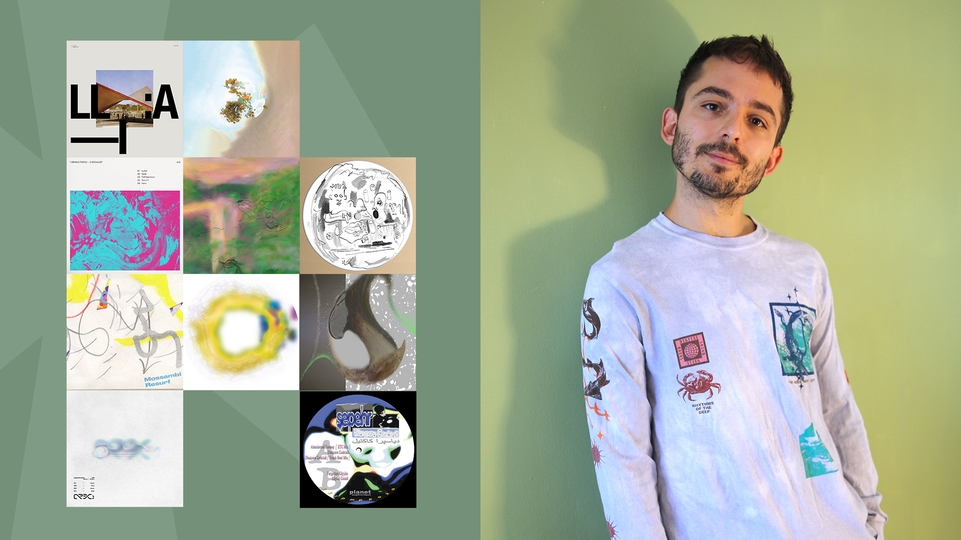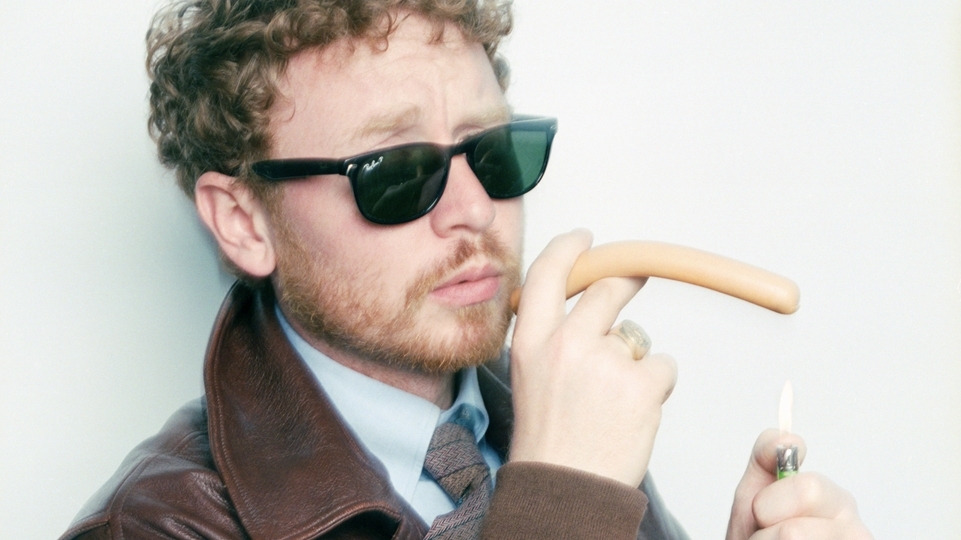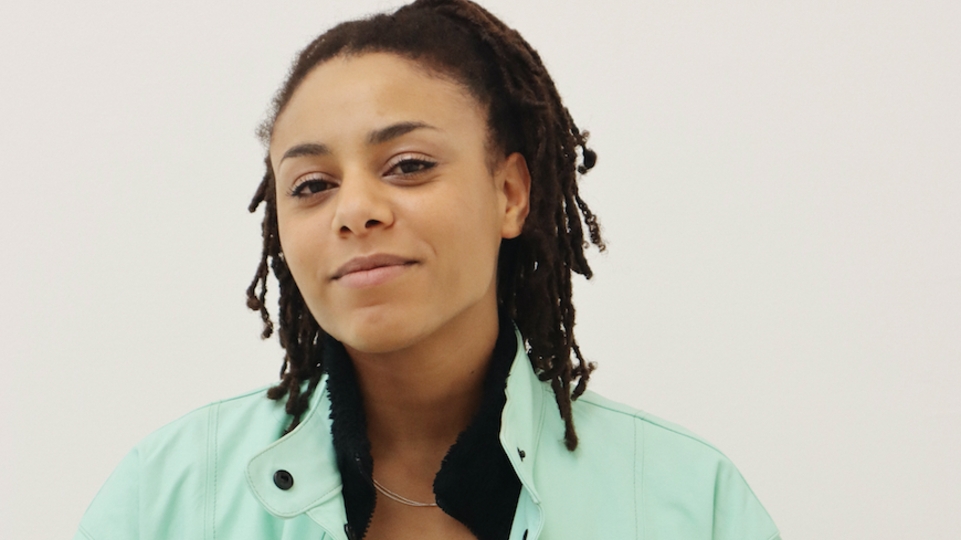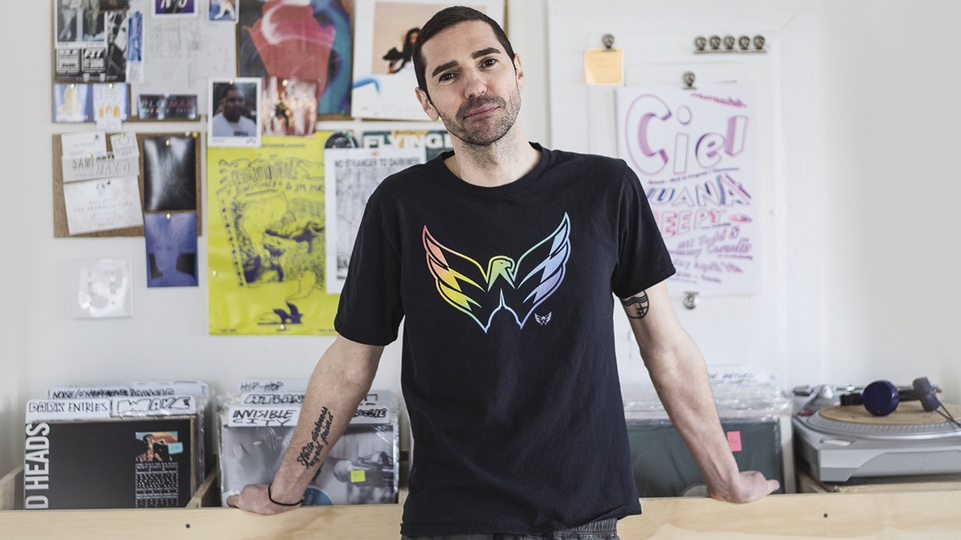
How Martyn is mentoring the next generation of electronic music producers
When the Covid-19 pandemic cleared Dutch producer, DJ and label boss Martyn’s diary, he turned his attention to others: starting his own mentoring programme for artists, covering everything from production and DJing, to navigating the dance music industry, mental health and more. This summer, out of the programme comes a triple-volume compilation, on his own 3024 label. DJ Mag chats with Martyn to find out more about this initiative, and how, in a post-pandemic world, mentoring can be a universal task
Martyn has spent the last 25 years making electronic music, but the Dutch artist still remembers his earliest days keenly. “I started in drum & bass but Eindhoven is a small place, so anyone making music — whether it was drum & bass, hip-hop, acid — was hanging out in the same places, so I could see how they developed their sound,” Martyn tells us, from his sunlit studio in Washington DC. Back then, there was no formal support structure for learning about these new sounds. He just shared a house with a few curious friends. “Our house became a hub: we had two Technics and a small studio, so we taught each other how to DJ and produce,” he remembers. “There was no internet. There were no magazines that talked specifically about the music we wanted to make. It was trial and error. We learned as we went along.”
Through this free-flowing, self-taught approach, Martyn’s work took off. He’s been DJing since 1995 and releasing solo music since the mid ’00s. In 2007, he co-founded the 3024 label with visual artist Jeroen Erosie, releasing his own records, as well as tunes by artists like Leon Vynehall, Trevino and Jacques Greene. In any given year, he’s a busy man.
Recently, though, he’s been thinking back to those days in Eindhoven. Despite all of the collaborative fun, he realised that he didn’t have someone to guide him. “I noticed, years later, when I was more experienced, that I had massive gaps in my knowledge about how to use things [like hardware], because I never bothered to find out,” he says. “I didn’t care. For me, it was much more important that a tool just did what I wanted it to do.”
After the cancellation of a tour last February due to the Covid-19 pandemic, Martyn decided to use his downtime to become a mentor, and launched his Artist Mentoring Program through Patreon. The programme has four tiers, spanning one-on-one lessons to group sessions. Although Martyn is the only official mentor, established artists like Luke Slater and dBridge join in on monthly Deeper Dives, with Martyn hosting Q&As.


“Some artists think that sharing knowledge will diminish their position. But once you can share knowledge, it actually becomes more fun, and everyone grows"
The remit of the programme is wide-ranging: Martyn teaches production software and hardware, tailoring each to group or individual needs; other topics include how to run a label, navigating the industry and mental health. Sonically, the programme is expansive, too. “There are singer songwriters, people that do ambient, people that do Berghain techno and bass music mutations,” Martyn says. “There are a lot of different things going on, and that makes it exciting.” Shortly after the launch, an online community took shape between tutorials. “People started talking and sharing ideas,” he says. “I have people on the programme who also have at least 20 years of experience, so they could answer questions that I couldn’t answer. Eventually, it became more like a community; nine months later, me and Jeroen had the idea to do a compilation.”
The triple volume, 28-track compilation, ‘It Was Always There’, is the guts of a year’s work, produced by the programme’s students. ‘Volume 1’ is available now through 3024, while ‘Volumes 2’ and ‘3’ will be released in August and September respectively. One of the artists on the compilation is ADG. “Being involved with Martyn’s programme has been such a positive experience over the past year,” ADG says. “Having a true industry professional sharing their experiences and knowledge has helped me focus on what really matters when making music.”
There’s also London-based producer Talik, who fell for the programme’s community spirit. “Programmes like Martyn’s have offered the opportunity to bring people together and build a passionate community. I hadn’t really heard of anything similar before the pandemic; usually, you have to find your own feet and navigate the industry with little support,” she says. “But these support structures offer a platform to find the confidence in your own voice. It was such a positive force amongst a challenging year. I’ve made friends from all over the world,” she continues, “and feel like I’m constantly inspired by all the talented artists who are a part of it.”
When it comes to describing his approach, Martyn uses the word “holistic” a lot. “I try to make it about the general workflow and frame of mind rather than about a specific tool,” he says. “It’s about the mental approach to making music and overcoming issues when you’re stuck. I show how things can be simple: that you don’t need particular pieces of hardware or software.” His methods emphasise the simplicity of producing music without the smoke and mirrors. “In some schemes, where people teach about the industry, they make it sound like it’s a secret knowledge. It’s important to underline that this is a form of gatekeeping; where certain producers give an impression of holding the ‘secret sauce’,” he continues.
“My idea was much more about talking to people, helping them find their own answers. I can give people information, but it’s important to figure out where you want to be in music; how much time do you want to put into it, what do you want to communicate to people?”

Combating cynicism is part of it, too. Martyn remembers when a student asked him about the programme’s longevity; what will happen once clubs reopen, and Martyn’s tour diary fills up again?
“The programme was never about finding a stopgap during the pandemic,” he tells us reassuringly. “When I mentioned this to everyone, they looked so relieved! I think people had the idea that they were subscribing to a programme and thought, ‘as soon as he’s back to gigging, he’s off!’ People expected to be conned, in a way, and that’s sad.”
What will happen once Martyn returns to gigging, though? “It’s about being selective — I have a lot of things to do, like mentoring!” he laughs. “I also do nights at Good Room in New York, which is like old school promoting; curating and bringing in new people. Now I have a whole host of people I can bring after this year.”
His own production ideas are in motion, too. “I’ve rebuilt my studio, and I’ve been collaborating and doing things that I had no time for before the pandemic, so my musical life has also changed. I’m excited about it.” In terms of implementing support structures for artists post-pandemic, Martyn encourages established artists to consider mentoring. Martyn’s vision for mentoring artists in a post-pandemic world is to dissolve preconceived notions of hierarchy when it comes to sharing knowledge, and making music production and DJing more accessible and community-based.
“Some artists think that sharing knowledge will diminish their position. But once you can share knowledge, it actually becomes more fun, and everyone grows. I have so much ‘big dad energy’,” he says warmly, “seeing the mentees grow and be a part of the compilation — and they inspire me because they come up with ideas. Mentoring is universal. It’s not a one-way street.”





